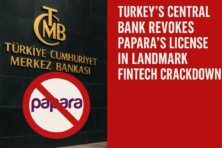Over two dozen prominent investors, including PayPal Ventures, General Catalyst, 8VC, and Samsung Next, have placed their bets on an AI-driven startup, Kite AI, focused on agentic AI payment and e-commerce infrastructure.

PayPal Ventures has led an $18 million Series A financing round in AI startup Kite (formerly Zettablock), bringing the company’s total funding to about $33 million.
The round included participation from a mix of 26 strategic and venture investors, including PayPal Ventures, General Catalyst, 8VC, Samsung Next, SBI US Gateway Fund, Vertex Ventures, Hashed, HashKey Capital, Dispersion VC, Alumni Ventures, Avalanche Foundation, GSR, LayerZero, Animoca Brands, Essence Venture Capital, and Alchemy.
The Series A funding round follows Kite’s recent commercial push of Kite AIR — a suite the company says enables autonomous software agents to authenticate, transact and operate with programmable identity and payment capabilities on a blockchain designed for machine-to-machine agentic AI commerce.
Kite’s core offerings also include Agent Identity Resolution (verifiable, policy-governed agent identities), Agent Passport (identity plus operational guardrails) and an Agent App Store where agents can independently discover and pay for services such as APIs, data and commerce tools. Kite says these components support native stablecoin payments, on-chain settlement and fine-grained permissioning, and are already integrated with commerce platforms including Shopify and PayPal so merchants can opt in to be discoverable by AI shopping agents.
If adopted at scale, agentic payment infrastructure like Kite’s could enable new e-commerce behaviors: autonomous assistants that shop and re-order on behalf of users, high-frequency micro-transactions between services, agent-to-agent metered billing, and near-instant, low-fee settlement that reduces reliance on card rails and mitigates typical chargeback risk. For merchants and e-commerce platforms, this promises more automated conversion flows, programmable offers, and tighter reconciliation between commerce and back-office systems.
Those possibilities come with caveats: widespread use of agentic payments will raise legal, regulatory and consumer-protection questions (AML/KYC, liability for autonomous transactions, data privacy), technical challenges around identity, interoperability and scalability, and the need for clear standards to prevent concentrated control or misuse.
While Kite’s innovative products and the strong investor backing signal growing industry interest in solving the payments gap for autonomous agents, broad adoption will depend on both market’s technical maturity and regulatory clarity.









